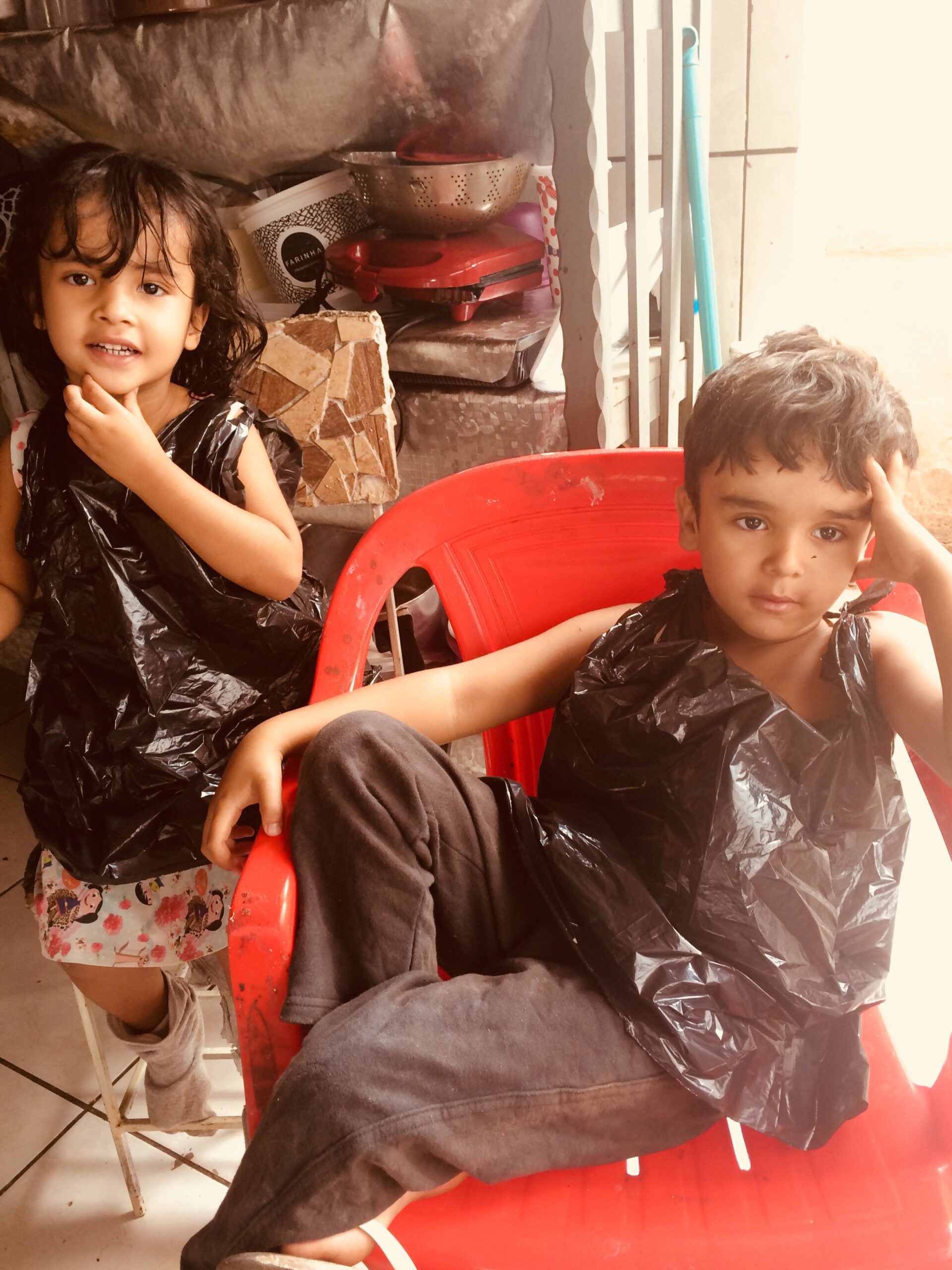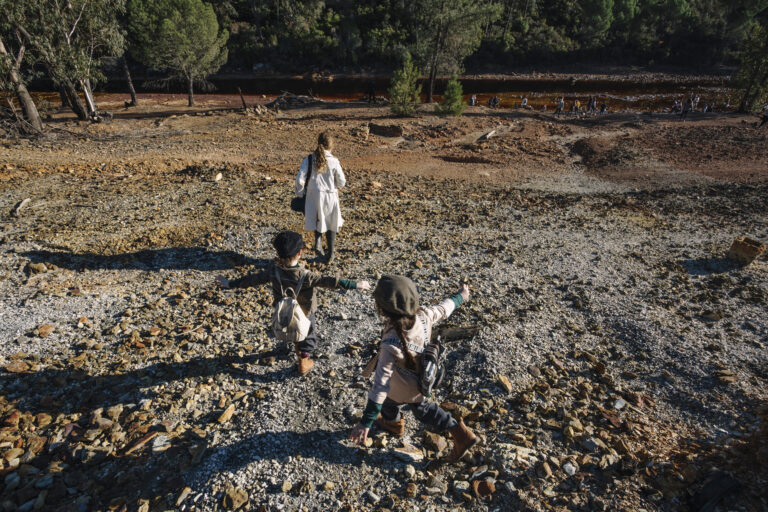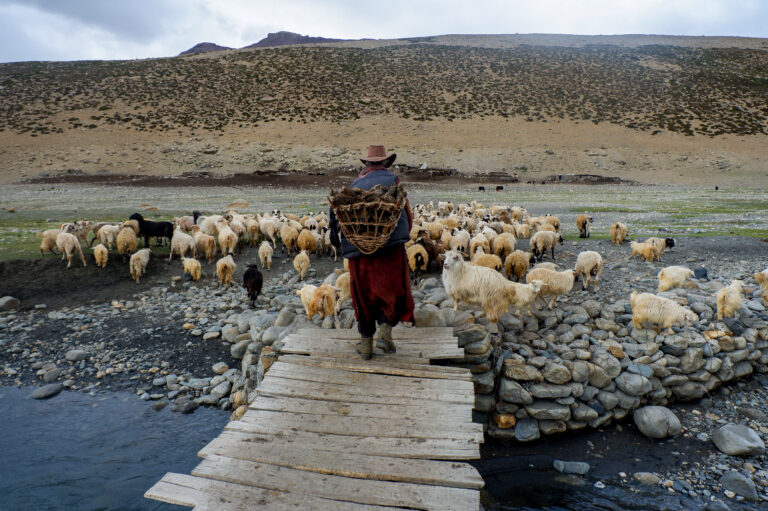
Renata Jacobs is the Swiss philanthropist behind the miracle of the foundation “Cartoneros y sus Chicos” (“Waste Pickers and Their Children”). The project, born from the harsh life experience of former waste picker Carlos Mansilla, today allows more than 160 children of urban recyclers to access quality educational programs instead of spending their days on the streets.
“I know very well, from childhood, what it means to have a hard life—a very hard life. To go hungry, for example, and to walk the streets looking for something, rummaging through garbage. It was something I had to endure, and luckily I was able to overcome it. That’s why I want to fight to prevent other children from suffering the same way I did.” These words come from Carlos Mansilla, 62, bright-eyed, with calloused hands. His eyes sparkle with joy, yet still reveal the pain that has become his driving force, his propeller. Ten years ago, by knocking on the right door, he encountered the brighter side of life—one that introduced him to the generosity of Renata Jacobs. With the donations of this Swiss philanthropist, he began helping the sons and daughters of waste pickers so they could study, learn a trade, and pursue a life project that would keep them permanently away from the streets.
“I don’t complain. On the contrary, collecting trash saved me; it gave me everything I have. With every peso I earned, pushing my little cart, I bought each brick for my home and ensured that my family always had food on the table. Fortunately, I never had to bring my family to work with me. But many waste pickers at the time, like me, had no one to leave their children with, so from a very young age these kids had to endure the harshness and cruelty of street life. That’s why my dream was that many of these children, the most humble of all, would have the education I never had,” explains Carlos Mansilla, who took his first steps in that direction by founding the Las Madreselvas Cooperative.
When Pain Becomes a Driving Force
Las Madreselvas began from sheer willpower, when Mansilla managed to gather the men and women who, like him, collected cardboard in the suburbs on their own. A community of souls who, like a dark procession, set out daily from the outskirts to comb through the streets of Buenos Aires in search of their rough treasure, the cardboard that would earn them a few pesos. As Mansilla made his daily rounds through different neighborhoods, he began to witness scenes he could not grow accustomed to—ones that, as a father, broke his heart. “I saw children riding on carts with their parents, and many others left on street corners to beg while their parents collected cardboard. Some were sent door-to-door to ask for clothes, money, food. As a father, I’ve always believed it should be the adults who support the family, not the children. I never liked that,” recalls Carlos of those difficult days.
“Amid so many walks and such determination to get ahead, I met many good people—kind people who listened and had the means to help in an organized way. Thanks to them, the idea of launching a workers’ cooperative for us, the waste pickers or environmental recyclers, became a reality,” he says of the cooperative, which was founded in 2001 and still stands strong with 600 workers. Since 2011, Las Madreselvas has also been part of a network of 14 cooperatives that, together with the Buenos Aires City Government, provide a coordinated service through the Centros Verdes (Green Centers), supported with transportation trucks supplied by the government.
It was also in 2011 that Mansilla learned of a Swiss businesswoman named Renata Jacobs, who was funding projects similar to his in other parts of the world. “Without hesitation, I presented her with my project, my idea to help poor children—the children of my fellow waste pickers,” he recalls of the early days of his dream. For her part, Renata Jacobs was more than happy to help. Her dream, like Carlos Mansilla’s, was to improve the quality of life of the world’s most vulnerable children through education.
A Dream Comes True
“We started out in Maquinista Savio, Escobar, when Mayor Sandro Guzmán donated facilities that had once been an abandoned school. The lifesaving funds provided by Renata gave new life and a modest brightness to the place. Later, four teachers and two coordinators joined us, along with my wife and me, and we began working with the children. We spent eight years there, grew a lot, and soon the space became too small. We moved to Pilar, to another plot of land donated by the local government,” details Mansilla, who no longer runs the foundation but visits every day. “To share, to be close to the children,” he says fondly.
Today, at the foundation’s new headquarters in the Lagomarsino neighborhood of Pilar, the laughter and games of young children fill the air. More than 160 children from the surrounding neighborhoods of Escobar and Pilar have found in this place the shelter of a true home. The foundation’s schedule is designed to complement school hours, so the children receive tutoring along with a nutritious snack or breakfast, depending on the time of day. “The boys and girls we welcome are mainly the children of members of the Las Madreselvas Cooperative, but also others who come through word of mouth from the families already placing their trust in us.
“At the moment, we are at full capacity, with a long waiting list,” says Diego Guilisasti, the current executive director of the Cartoneros y sus Chicos Foundation, with a broad smile. Today, thanks to the day their dreams converged, the children of the foundation—those of Carlos Mansilla and Renata Jacobs—run happily through the playground, do math, read books, and, thankfully, do not know the cold and indifference of the streets of Buenos Aires.






